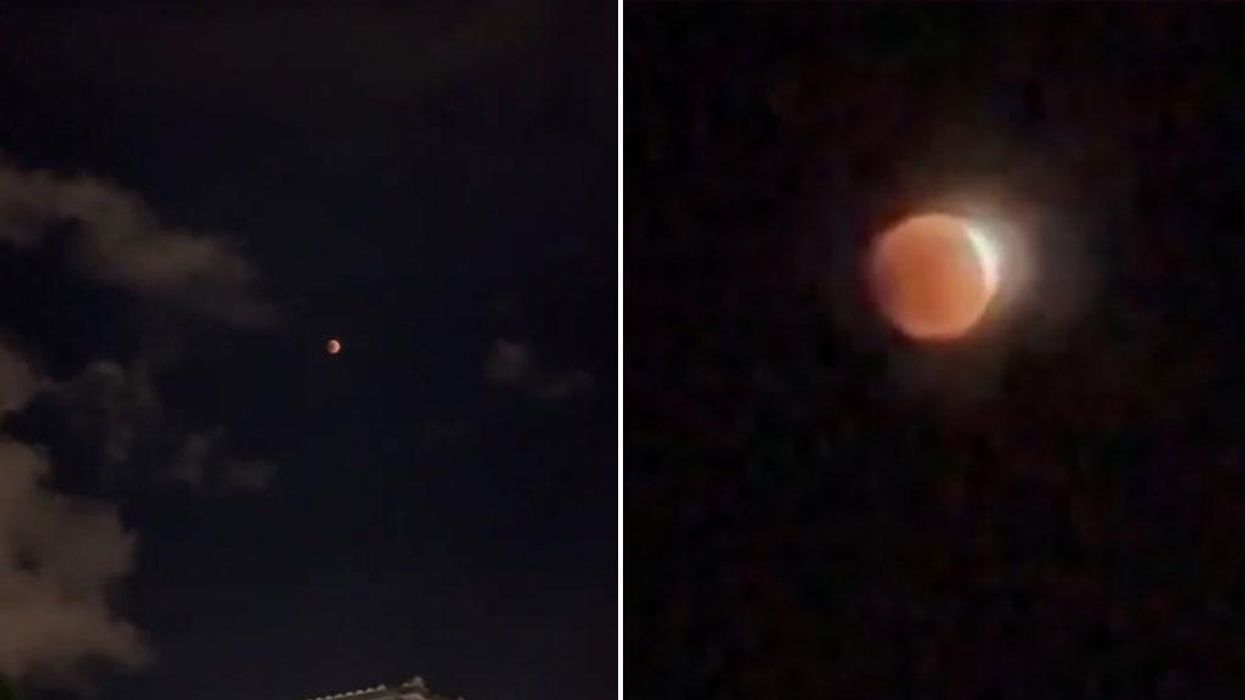Ellie Abraham
Jun 28, 2022
Blood moon eclipse appears in south Florida sky
Video
Scientists have been left bemused after a rocket that crashed into the moon remains unidentified as no one is owning up to it.
The mystery rocket crashed into the moon leaving two large craters on its surface, but no one knows who it belongs to.
It had been tracked in space since 2015 before crashing into the lunar surface on 4th March this year, travelling at more than 5 kilometres a second (3.11 miles per second).
Images taken from NASA’s Lunar Reconnaissance Orbiter spotted and documented the impact site that left a double crater and scientists explained it's unlike anything they have seen before.
Sign up to our new free Indy100 weekly newsletter
In a post on the space agency’s website, scientists explained: “Surprisingly the crater is actually two craters, an eastern crater (18-meter diameter, about 19.5 yards) superimposed on a western crater (16-meter diameter, about 17.5 yards).
“The double crater was unexpected and may indicate that the body had large masses at each end.
“Typically a spent rocket has mass concentrated at the motor end; the rest of the rocket stage mainly consists of an empty fuel tank.
“Since the origin of the rocket body remains uncertain, the double nature of the crater may indicate its identity.”
Astronomer and data scientist Bill Gray told the BBC he believes the rocket belongs to China, after initially thinking it may have come from a rocket launched by Elon Musk’s Space X.
After running new data received by an amateur observer, Gray believes the rocket came from is the third stage of Chang'e 5-T, a Chinese rocket lunar mission launched in October 2014.
Gray said: “I'm 99.9 per cent sure it's the China 5-T1.”
China has denied this, claiming that that stage of its rocket has already re-entered the Earth's atmosphere and burned up.
Have your say in our news democracy. Click the upvote icon at the top of the page to help raise this article through the indy100 rankings.
Top 100
The Conversation (0)














